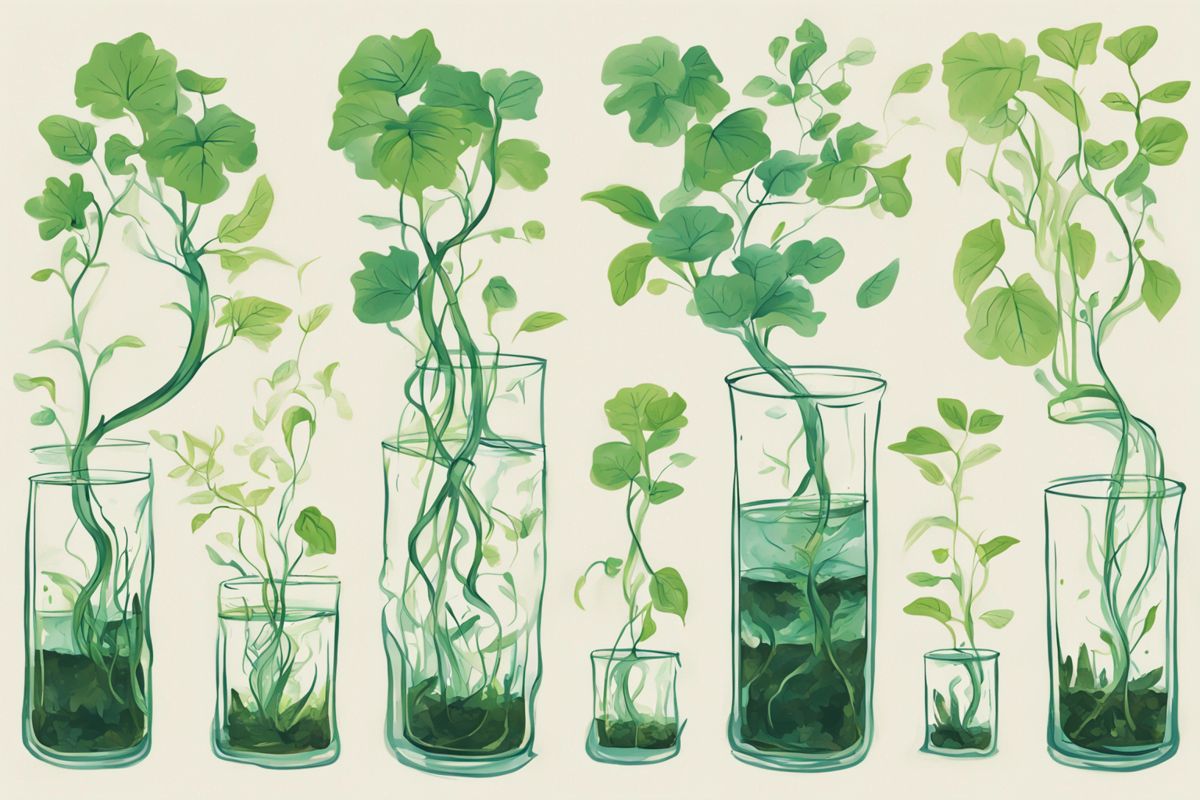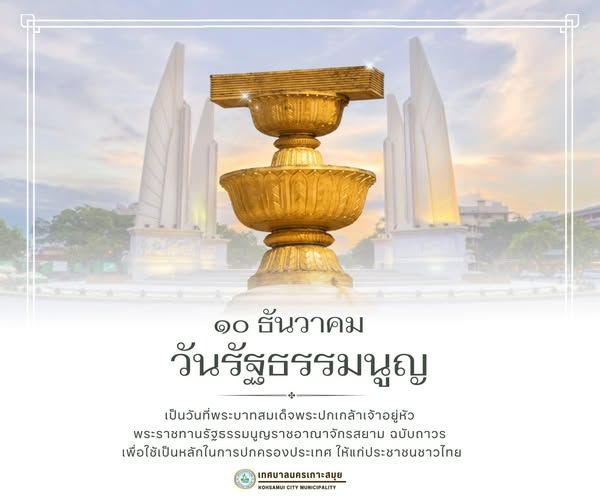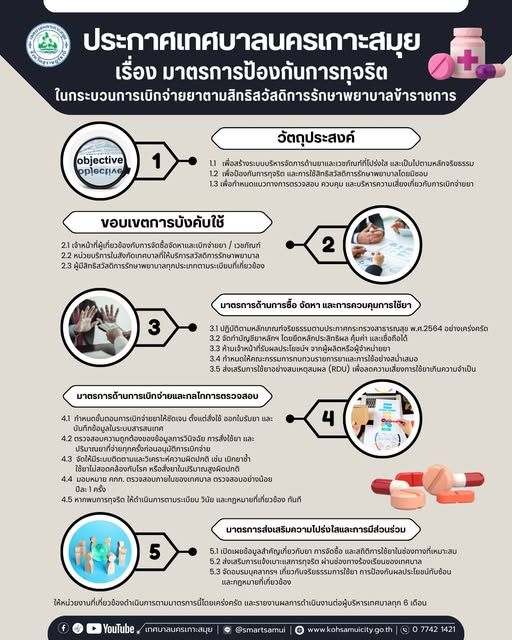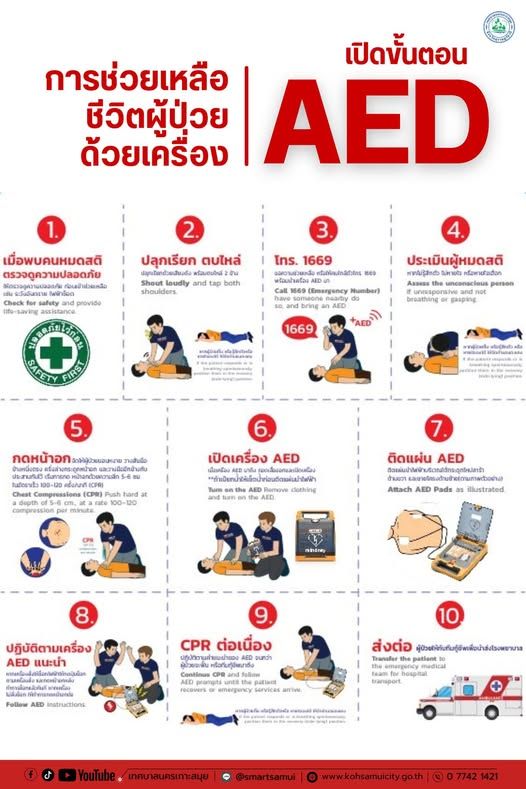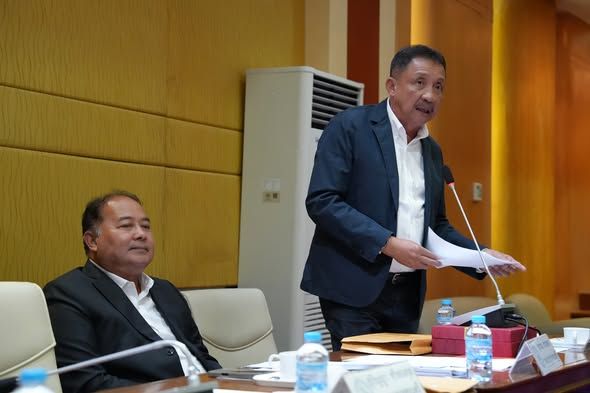Koh Samui is launching a new waste and wastewater training program on July 8-9, 2025, at Ban Ya Suan Pu Learning Center, aimed at transforming waste management for hotels, restaurants, and locals.
This initiative, led by Deputy Mayor Supinya Srithongkul, focuses on protecting the island’s environment and fostering a cleaner, greener paradise.
KohSamui #SustainableTourism #Thailand #EnvironmentalProtection #CleanKohSamui #GreenTravel #IslandLife #WasteManagement #WastewaterTreatment #EcoFriendly #TravelThailand #Samui
Introduction to Waste Management Initiatives on Koh Samui
Koh Samui Municipality recently advanced its environmental initiatives by hosting a comprehensive practical training program focusing on wastewater separation and disposal. This effort forms part of an ongoing community promotion project dedicated to enhancing waste separation and wastewater management directly at the source, catering to the unique needs of island communities.
Event Overview
On July 8-9, 2025, the Ban Ya Suan Pu Learning Center, situated in Bo Phut Sub-district, Koh Samui District, Surat Thani Province, became the hub for this vital training. The municipality conducted the sessions in two classes: the first for hotel and restaurant business operators, and the second for local environmental volunteers (AthoL), residents, market operators, department stores, and convenience stores. The event was attended by key figures including Ms. Supinya Srithongkul, Deputy Mayor of Koh Samui Municipality, officials from the Queen Sirikit Sericulture Center of Chumphon, municipal employees, and other notable stakeholders.
Program Objectives and Target Groups
The core objective of the project is to significantly improve environmental quality on Koh Samui, reduce waste contamination affecting the island’s natural resources, and safeguard public health. Given Koh Samui’s role as a prominent tourist destination, the initiative seeks to educate both businesses and the local population on effective waste separation and wastewater disposal methods. The program is structured to:
– Promote awareness of proper waste separation
– Strengthen community knowledge of household and business waste management systems
– Foster active public participation in on-site waste and wastewater management
Key Sessions and Activities
The training featured a series of specialized lectures and hands-on activities designed to provide participants with practical knowledge and skills:
Morning Sessions
-
Separate it Right to Become ‘Zero’
Led by Mr. Thada Wasakul, Sustainability Manager of Four Seasons Resort Koh Samui, this session focused on strategies to achieve zero waste through accurate waste separation practices. -
Turning Food Scraps into Treasure
Delivered by Mr. Kanit Somwong, owner of Ban Ya Suan Pu Learning Center, this activity taught attendees how to convert kitchen and food waste into valuable products like compost and natural fertilizers. -
Turning Wastewater into Clear Water
Conducted by Ms. Buppharat Loijiew, Environmental Operations Officer, this presentation demonstrated practical methods for treating and reusing wastewater at the community and household level.
An expert team from the Queen Sirikit Sericulture Center in Chumphon enriched the program with insights into sustainable environmental practices.
Afternoon Sessions
Lectures in the afternoon were led by Ms. Jintamas Silapaprommas, Vice President of the Ecological Way Foundation, Surat Thani Province, and her team. Topics included:
– Solid Waste Classification and the Value of Waste: Understanding the different types of solid waste and how proper classification adds value through recycling and resource recovery.
– Basic Household and Business Wastewater Management: Introducing fundamental concepts and simple techniques for safe and effective wastewater treatment in homes and businesses.
Additionally, participants engaged in collaborative activities to share experiences and discuss ways to expand mulberry cultivation and its applications, supporting local sustainability and economic opportunities.
Community Impact and Future Directions
The project is a key step in building a cleaner, healthier Koh Samui by empowering all segments of the community to take ownership of their waste and wastewater. By enhancing local capacity and encouraging collaboration, the municipality is positioning the island as a model for sustainable tourism and environmental management.
Frequently Asked Questions
FAQ: Wastewater and Waste Management Training on Koh Samui
What is the main objective of the wastewater separation and disposal training program in Koh Samui?
The main objective is to significantly improve the island’s environmental quality by promoting proper waste separation and wastewater management at the source. The program aims to reduce waste contamination, protect natural resources, and safeguard public health, supporting Koh Samui’s vision for sustainable tourism and a cleaner, greener community.
Who can participate in the training sessions, and what are the target groups?
The training is designed for a wide range of participants, including hotel and restaurant business operators, local environmental volunteers, residents, market and department store operators, and convenience store owners. By targeting both businesses and the local population, the initiative encourages community-wide engagement in effective waste and wastewater management practices.
What practical skills and knowledge will participants gain from the training?
Participants will benefit from specialized lectures and hands-on activities, such as:
– Learning correct waste separation techniques to help achieve zero waste.
– Understanding how to convert food scraps into compost and natural fertilizers.
– Gaining practical methods for treating and reusing wastewater at the household and community level.
– Learning waste classification and the value of recycling.
– Exploring basic concepts in household and business wastewater management, as well as sustainable practices like mulberry cultivation for local economic development.
